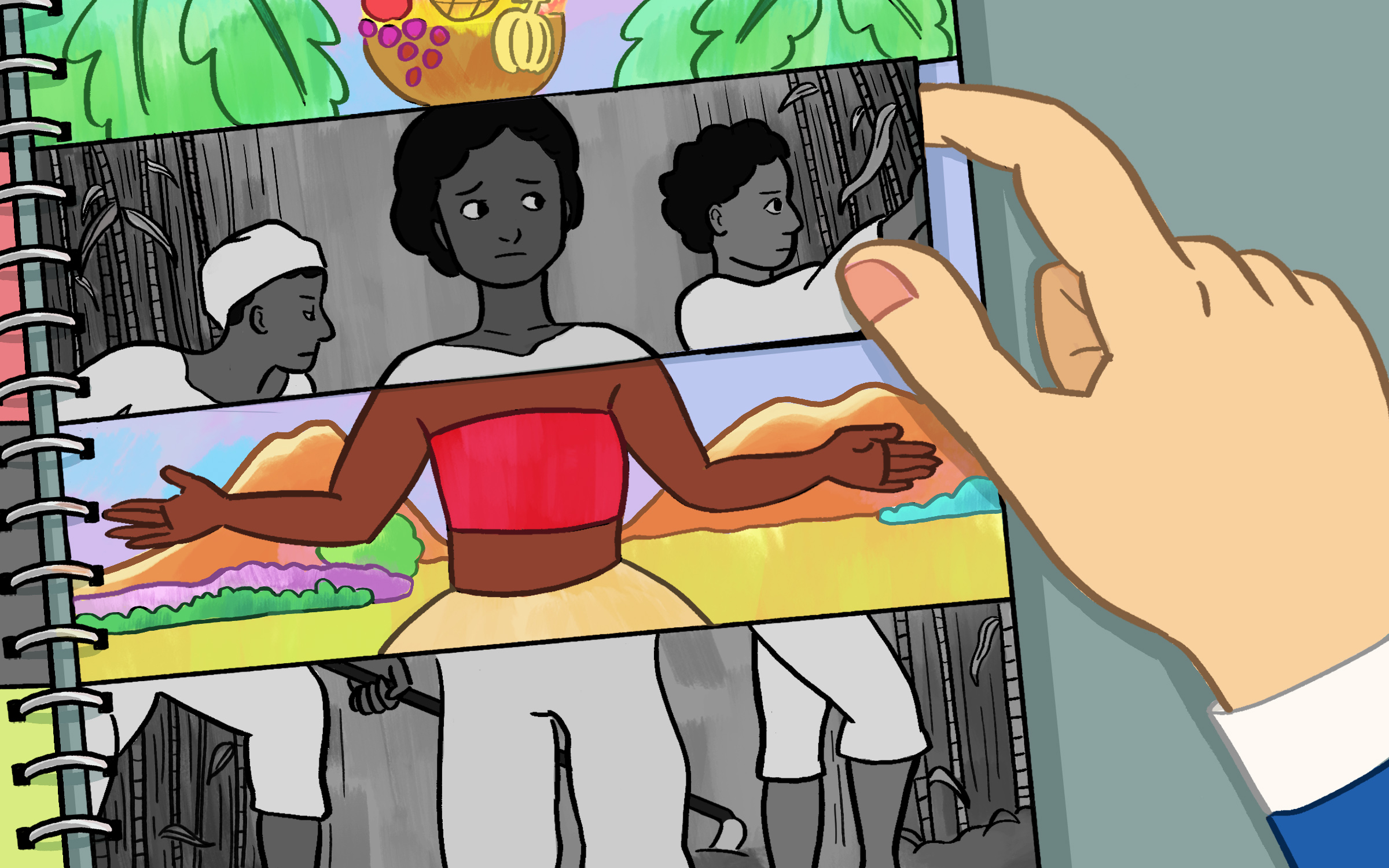Polo and Pan, a French electronic duo, are great artists—until the lyrics start. Dreamy rhythms become corroded by blatantly racist imagery as the (white) duo sings of “seeing [themselves] as ivory hunters… running away… to the Congo” in a Paris club. Their music imagines brutal scenes of colonization to an upbeat blend of techno and pygmy flutes.
Elsewhere in the city, partygoers might listen to L’Imperatrice sing of “indecent latitudes” and “the imperial exuberance,” or Claire Laffut tell tales of “speak[ing] a little bit like a Jamaican boy, Jamaican in my veins.” These artists have one thing in common: They represent the forefront of the French electronic music scene, which has recently become steeped in overtly racist overtones that somehow evade larger critique. Regretfully, the French electronic music industry is emblematic of a larger trend: French society’s denial of cultural appropriation. This willful ignorance goes hand in hand with France’s oppression of its citizens of color.
Cultural appropriation was first noted by writers of the Harlem Renaissance, but the term only gained traction recently after emerging out of postcolonial anglophone literature in the late 20th century. Broadly speaking, cultural appropriation encompasses the unacknowledged co-option of customs and ideas emulating from another people. Particularly important are the power dynamics therein: The appropriators almost always come from a historical position of privilege and dominance.
Though francophone academics have discussed cultural appropriation since the mid-1990s, its continued presence in French music reflects French society’s ignorance surrounding the issue as a whole. Furthermore, media coverage is skewed: French outlets tend to report on cultural appropriation principally in the context of American scandals, such as Madonna’s 2015 “Berber” outfit at the MTV awards ceremony. Yet, one can scroll through pages of Google results without finding a single article about l’appropriation culturelle in the context of France. It seems that the vast majority of French society is unable to look inward, treating cultural appropriation as a foreign phenomenon when, in fact, it flourishes at home.
Oftentimes, claims of cultural appropriation in France are reframed and defended as cultural appreciation. Laffut denied cultural appropriation in her music by arguing that she was merely representing her “curiosity and admiration” for music of other cultures. But alleging “appreciation” in a country where racism is both omnipresent in modern times and integral to national history is an excuse that rings hollow. Rather, cultural appropriation in French music conveys to French people of color that only certain aspects of their histories and traditions are “acceptable,” while the proprietors of these customs themselves remain marginalized.
The case of appropriation becomes even more curious when France’s official stance as a “color-blind” country is taken into account. Neither race nor ethnicity is included on the national census, yet cultural appropriation, exoticism, and racism abound in popular culture. Culture, it seems, may be acknowledged, but only with a flippancy that mocks the histories of the marginalized. “Color-blindness” does not erase color; instead, it allows such offensive behavior to thrive—especially when masked by the nebulous framing of “art.”
European art is a byproduct of colonial expansion and exploitation. The cultural appropriation in current French music can therefore be seen as an extension of this trend, one of many mediums through which colonialism operates today. Misrepresentations of colonialism in French music are reflected in French society at large: French history classes have asked students to identify “positive aspects” of colonization, while children verbalize the n-word in rap songs. Dreadlocks, too, are popular among white people.
The situation is not unlike that of the United States, save for France’s extremely narrow definition of what it means to be a “citizen”: While the country is ostensibly “color-blind,” the term “immigrant” has come to label all non-white French citizens, regardless of immigration status. This sentiment is manifested both societally by white French citizens and institutionally via national statistics. French people of color are therefore perpetually considered “outsiders” even when specified aspects of their cultures are accepted by the majority.
In order to remedy the prejudice entrenched within its culture, France must look inward and recognize the problematic nature of popular music in order to bring awareness to the large presence of cultural appropriation in French culture. There is not a simple step-by-step solution to this problem, but acknowledgment by French media of instances of cultural appropriation would inaugurate a very important—and necessary—conversation.
